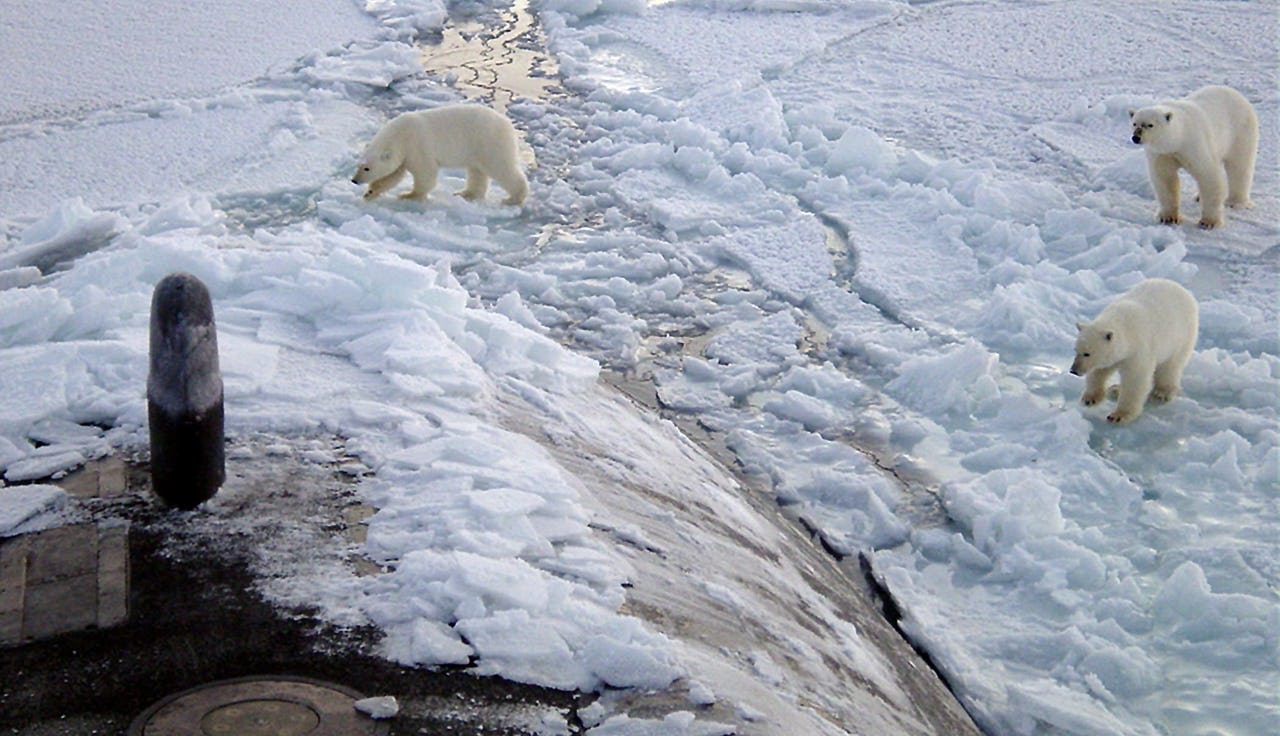The Arctic Institute Conflict Series: Conclusion

Three polar bears inspect the USS Honolulu submarines while surfaced 280 miles from the North Pole. Photo: U.S. Navy
I am often asked, “Why study the Arctic?”
There is a harmful misconception that the Arctic is both literally and functionally barren; a place where actors sometimes act and happenings occasionally happen, but where nothing of consequence really occurs without the influence of the “outside world.”
In reality, the Arctic is much more than how it is often imagined. It is a place of rich peoples, cultures, and environments; a collection of communities with interests, actors, and agency all their own. The individual pieces of The Arctic Institute’s 2021 Conflict Series provide insightful and timely analysis on a number of topics related to militarization, military activities, and peacebuilding in the circumpolar north. More than their individual contributions, though, these articles come together to highlight the diverse security risks and opportunities in both the historic and modern Arctic.
Contributors to this series identify the Arctic as a zone of primary conflict and as a secondary theatre in broad international wars, as a fundamental driver for global peacebuilding and as a critical playing field of international regimes and military competition. The Conflict Series has, overall, illustrated the importance of looking to past militarization and military activities as we endeavor to move forward in Arctic diplomacy—not because historic Arctic politics will be reproduced exactly in the present or future, but because history provides a glimpse into the true breadth of risks and opportunities facing Arctic stakeholders today.
So why study the Arctic? From World War II to the Cold War, individual resource disputes to global de-escalation, we can no longer afford to imagine the Arctic as a static and neutral theater for the rest of the world. Much more than a staging ground for external actors, the Arctic is – and always has been – a region of critical action in international politics and security.